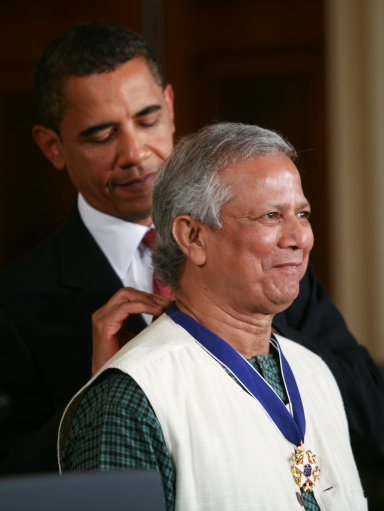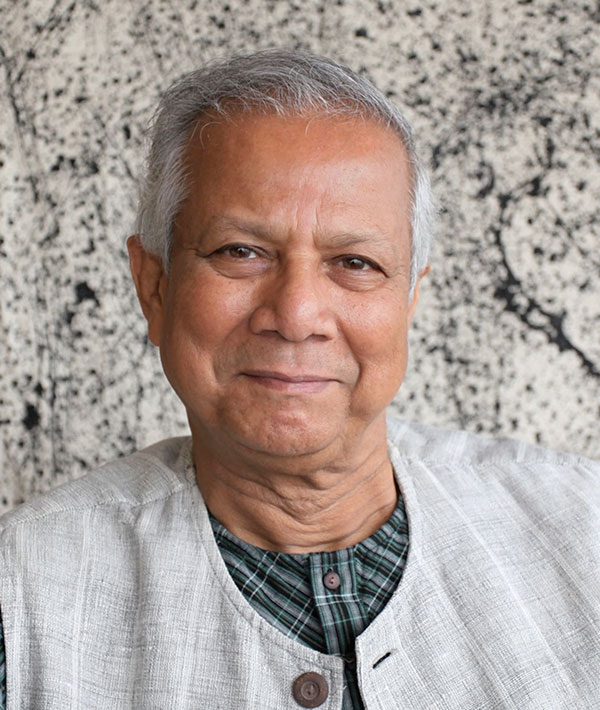“Poor people are like bonsai plants. If you take the seed of the tallest tree in the forest and put it in a flowerpot, that tree will only grow one metre high. You wonder, why does this tree not grow as tall as the one you saw in the forest? It simply doesn’t have a proper base to grow. Society never gives poor people the space, the base on which to grow tall.”
Muhammad Yunus has transformed the lives of millions of the poorest people around the world. In the 1970s he was working as a professor at the University of Chittagong in his native Bangladesh when he realised how small loans could make a disproportionately massive impact on people stuck in poverty. He lent $42 of his own money to craft workers, pioneering the concept of microcredit. The Grameen Bank (meaning village bank) was established to provide investment to people who mainstream banks traditionally avoid, basically spreading a little more soil for seeds to grow in. Most remarkably, loans are given entirely based on trust, with an almost 100 per cent repayment rate.

“We don’t have any lawyers,” Yunus explains. “Trust begets trust. If you trust them, they will trust you. Lawyers come when you distrust each other.”
And although microcredit is by definition small scale, together it all adds up. Today Grameen Bank lends over $2.5bn a year to nine million borrowers, approving between 1,000-2,000 business proposals each month, while the microcredit movement has grown and spread throughout the world, operating in the UK and also with over $1bn invested in the US, with plans to double that in the next few years.
Look at the United States, the election in Germany… people at the bottom are very unhappy
In 2006 Yunus’ work lifting millions out of poverty won him the Nobel Peace Prize. He continues to challenge the financial system he believes is designed for wealth monopoly rather than wealth distribution and which prioritises banks that were too big to fail while ignoring billions who are too small to matter. With ever-rising inequality he fears we are reaching a global tipping point.

“We are heading for massive disruption, an explosive situation – socially, politically, economically – because of wealth concentration,” he tells The Big Issue from New York, where he has been spreading his message at the United Nations.










